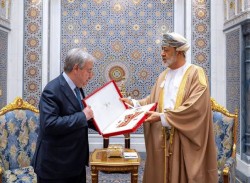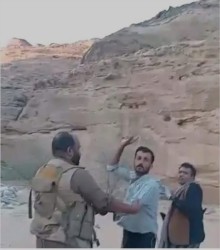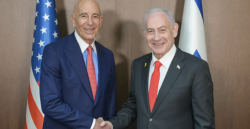How suicide became the hidden toll of the war in Ukraine
- 2022-02-10 04:17:04


 Pierre Rayer: Art, Science, and Happiness: The Universal Mission of Transmission to Future Generations through Patronage at the Louvre Abu Dhabi
Pierre Rayer: Art, Science, and Happiness: The Universal Mission of Transmission to Future Generations through Patronage at the Louvre Abu Dhabi Ahly crowned Super champions after dramatic extra-time win over Modern Future FC
Ahly crowned Super champions after dramatic extra-time win over Modern Future FC Yemeni Honey..A Development Wealth Threatened By Conflict And Climate Change
Yemeni Honey..A Development Wealth Threatened By Conflict And Climate Change California wildfires: Millions warned of possible power cut
California wildfires: Millions warned of possible power cut Central African rebels launch attacks near capital
Central African rebels launch attacks near capital Guterres, Oman’s Sultan Discuss Yemen Crisis and Detained UN Staff
Guterres, Oman’s Sultan Discuss Yemen Crisis and Detained UN Staff Jordan Stun Saudi Arabia in Semifinals and Set Up Epic Showdown With Morocco in FIFA Arab Cup Final
Jordan Stun Saudi Arabia in Semifinals and Set Up Epic Showdown With Morocco in FIFA Arab Cup Final ACJ Condemns Extrajudicial Execution in Shabwa, Yemen
ACJ Condemns Extrajudicial Execution in Shabwa, Yemen Morocco Advance to the FIFA Arab Cup Final With Win Over the United Arab Emirates
Morocco Advance to the FIFA Arab Cup Final With Win Over the United Arab Emirates PM Netanyahu Meets with US Ambassador to Turkey and Special Envoy to Syria Tom Barrack
PM Netanyahu Meets with US Ambassador to Turkey and Special Envoy to Syria Tom Barrack
